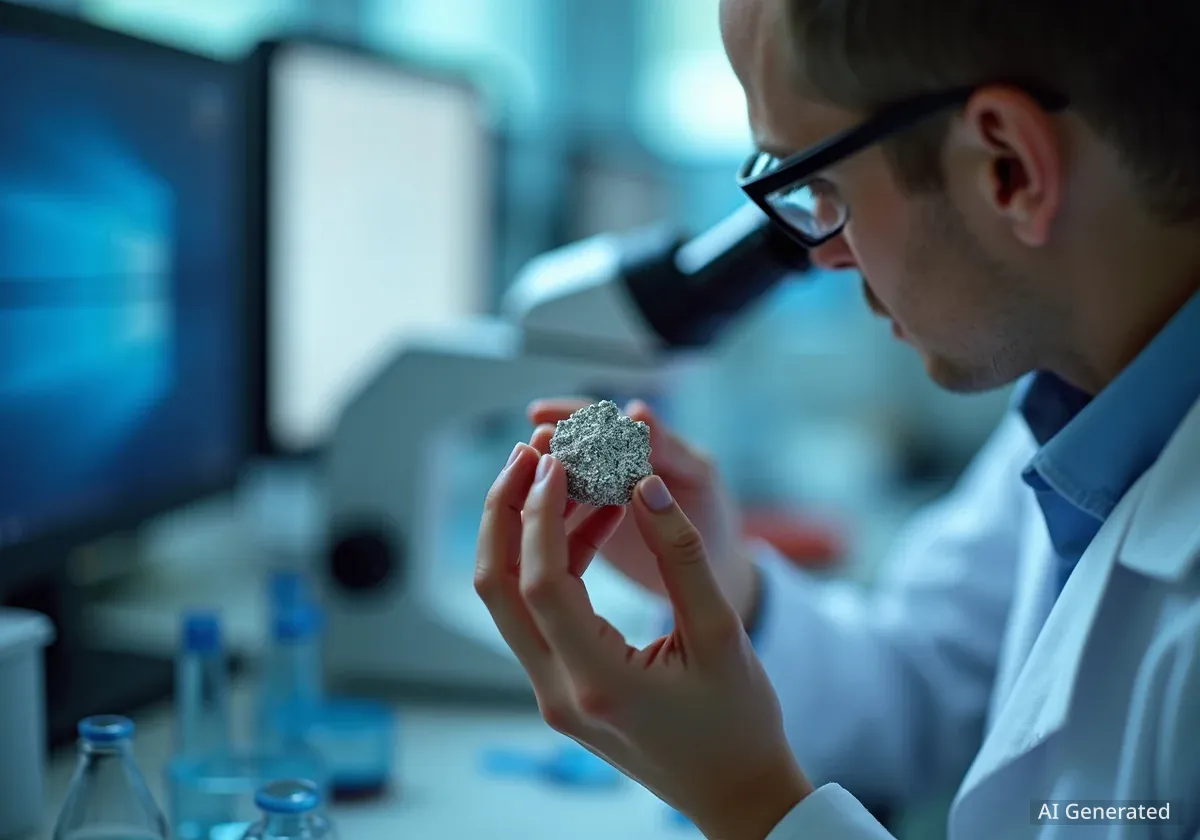The University of Wisconsin–Madison has officially opened Morgridge Hall, a new $267 million facility for its School of Computer, Data, and Information Sciences (CDIS). The project was completed entirely with private funding, with significant contributions from principal donors John and Tashia Morgridge.
During a ribbon-cutting ceremony, university leaders and donors emphasized the building's role in positioning the university at the forefront of the artificial intelligence revolution and providing a central hub for its rapidly growing technology programs.
Key Takeaways
- UW-Madison has inaugurated Morgridge Hall, the new home for its School of Computer, Data, and Information Sciences.
- The facility cost $267 million and was fully funded through private donations, a significant milestone for a public university project of this scale.
- Principal donors John and Tashia Morgridge, both UW alumni, were the primary benefactors.
- The building is designed to support the university's focus on artificial intelligence, data science, and computer science education and research.
A New Center for Technological Advancement
Morgridge Hall represents a major step forward for UW-Madison's technology-focused disciplines. The new building provides a centralized home for the School of Computer, Data, and Information Sciences, which was established to bring together the university's strengths in these high-demand fields.
The facility is intended to foster collaboration between students, faculty, and researchers across departments that were previously spread out across campus. By creating a unified space, the university aims to accelerate innovation and prepare students for careers in a tech-driven economy.
About the CDIS
The School of Computer, Data, and Information Sciences was founded in 2019. It combines the Department of Computer Sciences, the Department of Statistics, and the Information School (iSchool). Enrollment in these programs has seen explosive growth over the past decade, making it one of the fastest-growing areas of study at UW-Madison.
The building's design includes modern classrooms, state-of-the-art research labs, and collaborative work areas. These features are expected to help attract and retain top talent in both faculty and students, solidifying the university's reputation as a leader in technology education.
Visionary Philanthropy Drives Project
The construction of Morgridge Hall was made possible entirely through private philanthropy, a notable achievement for a project of this magnitude at a public institution. The primary donors, John and Tashia Morgridge, are alumni of the university with a long history of supporting educational initiatives.
At the opening ceremony, John Morgridge, former CEO of Cisco Systems, highlighted the project's forward-looking purpose. He framed the event not just as a building dedication, but as a commitment to the future of technology.
"We're cutting a ribbon, but the real importance isn't that we're cutting a ribbon. We're launching at the very early stages of a new revolution, the AI revolution," Morgridge stated.
His comments underscore the belief that the new facility will serve as a critical incubator for innovation, particularly in the field of artificial intelligence. The investment is seen as a strategic move to ensure UW-Madison plays a central role in shaping this technological shift.
Funding at a Glance
- Total Cost: $267 million
- Funding Source: 100% private donations
- Principal Donors: John and Tashia Morgridge
- Significance: One of the largest privately funded capital projects in the university's history.
Tashia Morgridge, a retired special education teacher, also spoke at the event, offering a message of encouragement to the university community. She spoke about the couple's journey and the importance of perseverance.
"Our life's journey has been incredible. We have been so fortunate. We have been so lucky. We've been so involved. We've been so welcomed," she said, encouraging students to continuously seek new opportunities and pursue their goals.
Inauguration and Future Outlook
The official opening was marked by a ribbon-cutting ceremony attended by prominent state and university officials. In addition to the Morgridges, speakers included Wisconsin Governor Tony Evers, UW-Madison Chancellor Jennifer Mnookin, Dean of the College of Letters and Science Eric Wilcots, and UW System President Jay Rothman.
Chancellor Mnookin praised the donors for their vision and generosity, noting that Morgridge Hall will have a transformative impact on the campus for generations to come. The speakers collectively emphasized that the building is more than just a physical structure; it is a symbol of the university's commitment to leading in an era defined by data and computation.
Meeting a Growing Demand
The need for a facility like Morgridge Hall is underscored by the dramatic increase in student interest in computer and data sciences. Over the last ten years, the number of students majoring in computer sciences at UW-Madison has grown by more than 500%, making it one of the most popular majors on campus.
This new building provides the necessary infrastructure to support this growth. It offers expanded capacity for teaching, research, and hands-on learning, ensuring that students have access to the resources they need to succeed in these competitive fields.
University officials anticipate that the collaborative environment within Morgridge Hall will lead to new interdisciplinary research projects, further enhancing UW-Madison's contributions to science and technology. The facility is poised to become the epicenter of data-driven discovery on campus.





